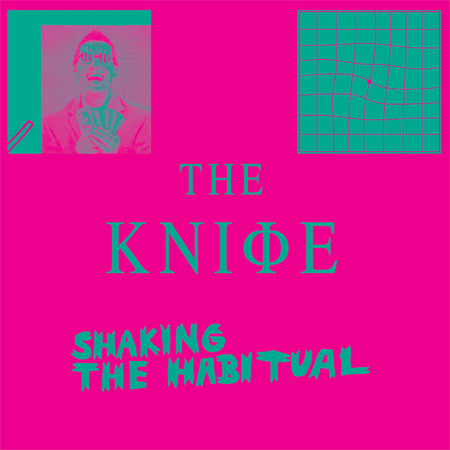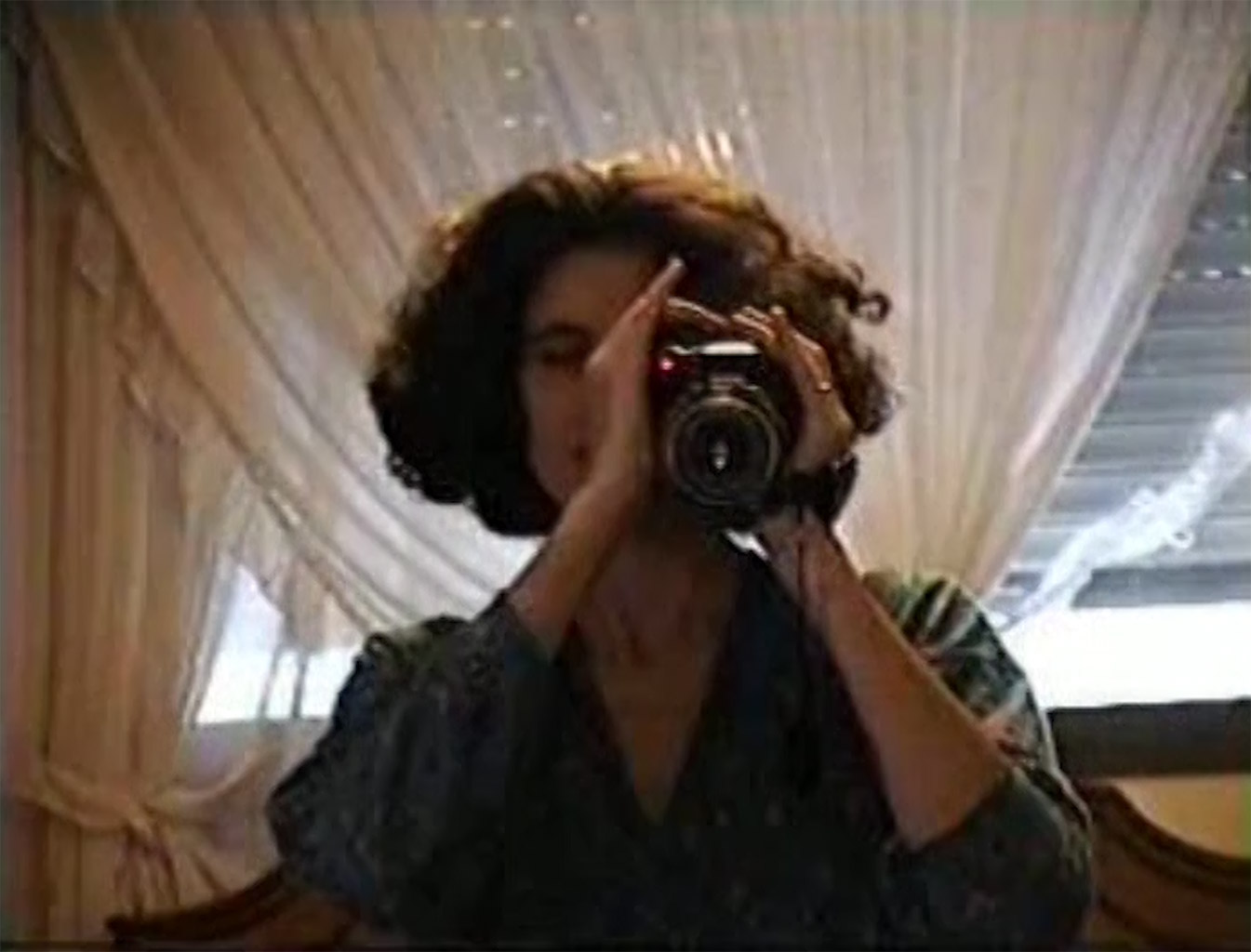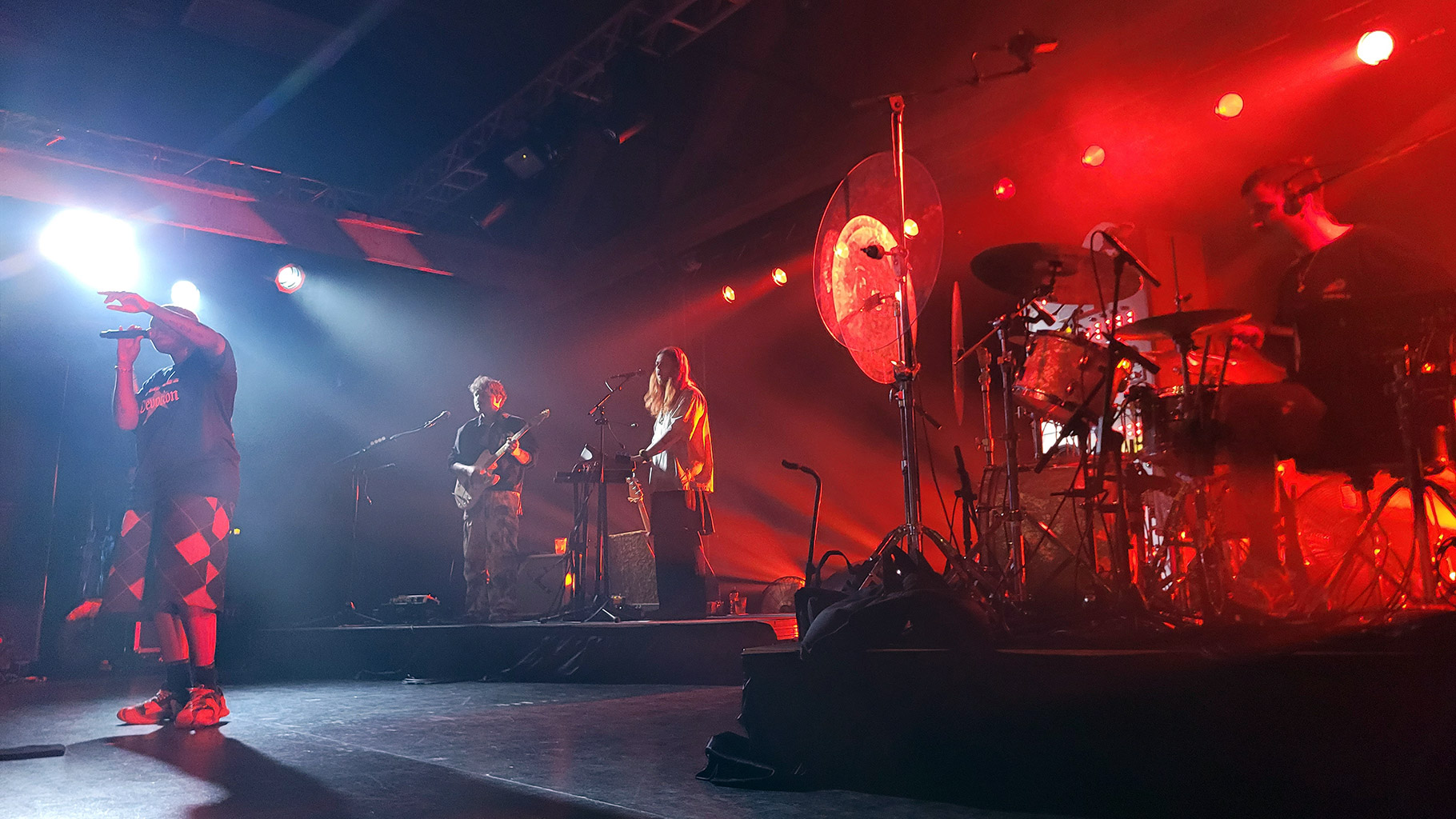From the heavy-handed manuscript and bio written to accompany their first album in seven years to the album’s eye piercing artwork, The Knife pull no punches in making sure the ideology behind Shaking The Habitual is made clear. And while it’s not always executed gracefully, the two Swedish siblings certainly remain a relevant force on this indoctrinating album.
What’s most difficult to ignore upon first glance is Shaking the Habitual‘s expansive track listing. Clocking in near 100 minutes, with a 19-minute track positioned squarely at the center, Shaking the Habitual is an album bent on perturbing even the most dedicated of listeners. And herein lies the major crux of the album, the very essence of The Knife which allows them to differentiate from their peers: Shaking the Habitual is not music written for escapism; it’s a social enigma masquerading as music. Instead of something to enjoy, “to please” as Dreijer put it, Shaking the Habitual rails against every conceptual conceit in modern music. Or at least that’s what The Knife want you to think.
Manuscript by Olof Dreijer
We didn´t plan to make another album.
We wanted to do something again but had to find a purpose.
Music can be so meaningless.
We had to find lust.
We started to read together
approached each other through books, gathering knowledge
they have been there before us
they made a difference
the words of others
we get our language back through the language of others
and return to the meaningful in creation.
We played, felt joy.
Started to improvise
to find something less predictable
to let go of what we already knew about music
explore what we didn’t
without requiring complete answers
lust
letting go
step in to oblivion
to forget expectations.
We made up our own sound sources
used made up, home made instruments
played traditional instruments in non traditional ways
tried to find non traditional ways of creating traditional sounds
we wanted to find a room where all sounds are just as odd, just as normal,
where the border between normal and strange is erased
We made studies, recorded improvisations,
and turned it in to compositions.
Studies –
such as working your way to the core of an instrument to find out its potential.
Like finding sounds in which the bed spring
sounds like a voice or a voice sounds like a bed spring.
To listen when you play within the non definable now,
not considering what’s right and what’s wrong.
by entering the work process with an open and inquiring mindset, the record turned in to something completely different than it would have been if the end goal had been a finished album all along.
Once you stop caring about rules.
Time, for example. It’s been important to experiment with time. To question the function of popular music, to make music that demands peoples time and consciousness. That is impossible to consume in a quick and easy way. Long difficult songs
What we do is political.
That should be impossible to misunderstand.
We do not want to please, we want to question the Knife.
How we make music, in what ways we are influenced by the market judgments on what is good and what is bad,
what is allowed to exist and what is not.
The lyrics are more conceptually conceived than the music.
Inspired by 70’s political hymns from our childhood.
Or maybe our record poses the question about what a politicial hymn is in our time.
We know that there is no easy answers.
There are answers that hurt
answers that are noise.
We are privileged.
We can afford to fight commercial homogenization – the ideals reproduced in the extremely hierarchical structure that the music industry constitutes.
Making music within it tends to feel meaningless.
That is why the process has become so important to us.
Creating a space in which we want to exist.
Working collectively is becoming important, letting others contribute their knowledge.
Viewing the process as the creation of a collective.
We asked our friends and lovers to help us.
We felt too safe behind the masks, the mask had become an image of the Knife, something that was meant to question identity and fame became a commercial product, an institution.
Through our community we felt less alone, felt safer
became brave enough to let our old masks fall.
behind the masks are other masks
there are ways to get to know us through the music
to open up
The creation of identities as a way of mirroring oneself in others
to go where we do not recognize
daring to question. The process of understanding that we don´t have to reproduce identities that is expected from us.
Music as a tool that create movements, a room where everything is possible. The revolution of bodies opening up. Transformation as a physical feeling.
We use our lyrics to not be misunderstood. We are longing for something else, a more bearable world
In our lyrics we criticize the institution of the royal family.
A symbol for the illusion in which the world is embedded,
℀ the construction of the nuclear family
an institution that conserves inequality, injustice and exclusion.
that our belonging, our conditions in life, are determined by our blood.
The challenge is to live together in solidarity beyond nuclear families, nations and unions.
It’s time to move, to fall, to fly
Dreijer goes on to write in the same manifesto that the two were hoping to create “… [music] that is impossible to consume in a quick and easy way. Long difficult songs.” This idea forms a tension on the album, and one that wholly distracts from the bulk of the songs. The 19-minute “Old Dreams Waiting To Be Realized” is nothing more than the noise of a few industrial machines carrying on for about 19 minutes too long — though it is incredibly triumphant in its ability to achieve exactly what The Knife set out to do: dare the listener to turn it off. “Crake” and “Oryx” function as much shorter ways to create this tension, accomplished by the sounds of instruments pulling at each other in a way that’s both unsettling and generally discomforting, just as likely to be skipped as something nineteen times its length. These three tracks, which sorely stick out from the rest of Shaking the Habitual, so desperately fill the desire of the group to be subversive and counterculture that it detracts from the album as a completed work. The lack of structure or nuance — traits that have defined and enriched past albums — makes these pointless tracks all the more frustrating. But maybe this is the way both Olof and sister Karin purge their hatred of pop culture norms, creating something so insidious that regardless of its success there remains a sense of accomplishment; a weight lifted.
The rest of the album, which I should point out is most of the album, plays out tremendously. “A Cherry On Top” owes its debts to David Lynch scores, a haunting formation of organ sounds and indistinguishable loops played mostly in reserve before barreling towards a crescendo of what sounds like an oil drum being rolled down a hill, set to the sputtering of a tractor engine. In so many ways, Shaking the Habitual is like a car crash playing out on a fuzzy television screen. You wince and squint, never looking away for fear of missing an important human action or display of physics-defying mutilation. Even on tracks like “Without You My Life Would Be Boring” and “Raging Lung”, two of the more exuberant, dance-oriented songs on the album, Shaking the Habitual commands every bit of energy and attention a listener might have. Maybe it’s the way the group has positioned the album, what with the lengthy PDFs explaining the release and their mindset, that I feel guilty pulling even my eyes away from the ticking MP3s. Breathing too heavily, blinking too fast — any disruption in your normal routine seems to disrupt the organic music, but with songs as impressive as “Ready To Lose”, it’s hard to not play by their rules.
But for all the album’s successes, from the whimsical flute interludes to the home-recorded hauntings and incredible live drums, Shaking The Habitual leaves little room for its listeners. It’s an entirely insulted experience, one that feels like it should be left alone and admired but never tampered with. To think outside of its predetermined box would be blasphemous. For an album so esoteric and politically-charged, it should, and likely will, warrant a deal of discussion from its fans. But to impose opinion on a piece of art so definitely set in its ways seems almost rude, in a way. For as much as The Knife question social norms, it’s awfully bad at questioning its own habits.
Shaking the Habitual could do a better job at teaching rather than preaching, but their music remains an industry outlier, and a good one at that. The ambient numbers are indeed challenging (don’t mistake that for a good thing), and the album as a whole requires a commitment few people are able to make. If you’re excited about Shaking the Habitual as a way to reaffirm the notion that The Knife are indeed the greatest electronic artists out there, as so many fans seem to think, then you’re no doubt going to fall in love all over again. But for newcomers, and those who are just curious, you might also find something worthwhile here. Just whatever you do, don’t call it “pleasing”.
Ω







